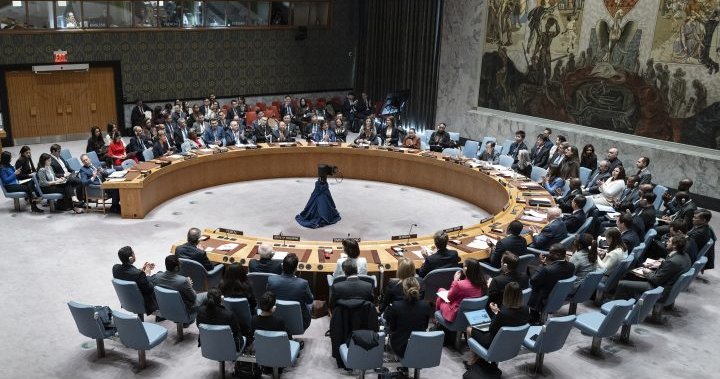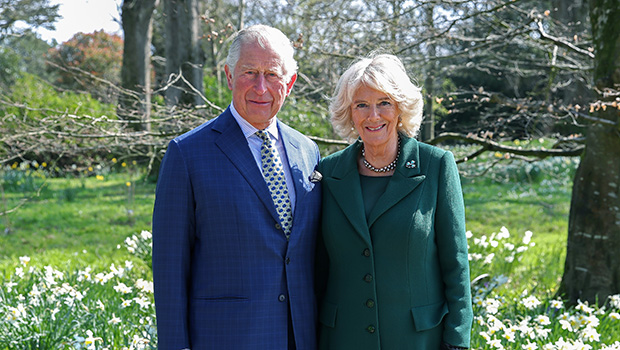The United Nations Security Council on Monday demanded a ceasefire in Gaza during the Muslim holy month of Ramadan, its first call to halt fighting.
Israeli Prime Minister Benjamin Netanyahu immediately canceled a planned visit to Washington by a high-level delegation to protest the decision.
The resolution passed 14-0 after the U.S. decided not to use its veto power and instead abstained on the resolution, which also demanded the release of all hostages taken captive during Hamas’ Oct. 7 surprise attack in southern Israel. But the measure does not link that demand to the ceasefire during Ramadan, which ends April 9.
Netanyahu accused the U.S. of “retreating” from what he said had been a “principled position” by allowing the vote to pass without conditioning the ceasefire on the release of hostages held by Hamas.
The Israeli delegation was to present White House officials with plans for an expected ground invasion of the strategic Gaza town of Rafah, where over 1 million Palestinian civilians have sought shelter from the conflict.
White House national security spokesman John Kirby said the U.S. had been “consistent” in its support for a ceasefire as part of a hostage deal.
“The reason we abstained is because this resolution text did not condemn Hamas,” Kirby said.
The vote comes after Russia and China vetoed a U.S.-sponsored resolution Friday that would have supported “an immediate and sustained ceasefire” in the Israeli-Hamas conflict.

The United States warned that the resolution approved on Monday could hurt negotiations to halt hostilities by the U.S., Egypt and Qatar, raising the possibility of another veto, this time by the Americans.
The resolution, put forward by the 10 elected council members, was backed by Russia and China and the 22-nation Arab Group at the United Nations.
A statement issued Friday night by the Arab Group appealed to all 15 council members “to act with unity and urgency” and vote for the resolution “to halt the bloodshed, preserve human lives and avert further human suffering and destruction.”
The email you need for the day’s
top news stories from Canada and around the world.
“It is long past time for a ceasefire,” the Arab Group said.
Because Ramadan ends next month, the ceasefire demand would last for just two weeks, though the draft says the pause in fighting should lead “to a permanent sustainable ceasefire.”
Since the start of the conflict, the Security Council has adopted two resolutions on the worsening humanitarian situation in Gaza, but none has called for a ceasefire.
More than 32,000 Palestinians in Gaza have been killed during the fighting, according to the Hamas-run Gaza Health Ministry. The agency does not differentiate between civilians and combatants in its count, but says women and children make up two-thirds of the dead.
Gaza also faces a dire humanitarian emergency, with a report from an international authority on hunger warning March 18 that “famine is imminent” in northern Gaza and that escalation of the conflict could push half of the territory’s 2.3 million people to the brink of starvation.
U.S. Ambassador Linda Thomas-Greenfield told the council Friday that the resolution’s text “fails to support sensitive diplomacy in the region. Worse, it could actually give Hamas an excuse to walk away from the deal on the table.”
“We should not move forward with any resolution that jeopardizes the ongoing negotiations,” she said, warning that if the diplomacy isn’t supported, “we may once again find this council deadlocked.”
“I truly hope that that does not come about,” Thomas-Greenfield said.

The United States has vetoed three resolutions demanding a ceasefire in Gaza, the most recent an Arab-backed measure on Feb. 20. That resolution was supported by 13 council members with one abstention, reflecting the overwhelming support for a ceasefire.
Russia and China vetoed a U.S.-sponsored resolution in late October calling for pauses in the fighting to deliver aid, the protection of civilians and a halt to arming Hamas. They said it did not reflect global calls for a ceasefire.
They again vetoed the U.S. resolution Friday, calling it ambiguous and saying it was not the direct demand to end the fighting that much of the world seeks.
The vote became another showdown involving world powers that are locked in tense disputes elsewhere, with the United States taking criticism for not being tough enough against its ally Israel, even as tensions between the two countries rise.
A key issue was the unusual language in the U.S. draft. It said the Security Council “determines the imperative of an immediate and sustained ceasefire.” The phrasing was not a straightforward “demand” or “call” to halt hostilities.
Before the vote, Russia’s UN Ambassador Vassily Nebenzia said Moscow supports an immediate ceasefire, but he criticized the diluted language, which he called philosophical wording that does not belong in a UN resolution.
He accused U.S. Secretary of State Antony Blinken and U.S. Ambassador Linda Thomas-Greenfield of “deliberately misleading the international community” about calling for a ceasefire.
“This was some kind of an empty rhetorical exercise,” Nebenzia said. “The American product is exceedingly politicized, the sole purpose of which is to help to play to the voters, to throw them a bone in the form of some kind of a mention of a ceasefire in Gaza … and to ensure the impunity of Israel, whose crimes in the draft are not even assessed.”
China’s UN ambassador, Zhang Jun, said the U.S. proposal set preconditions and fell far short of expectations of council members and the broader international community.
“If the U.S. was serious about a ceasefire, it wouldn’t have vetoed time and again multiple council resolutions,” he said. “It wouldn’t have taken such a detour and played a game of words while being ambiguous and evasive on critical issues.”
Friday’s vote in the 15-member council was 11 members in favor and three against, including Algeria, the Arab representative on the council. There was one abstention, from Guyana.

After the vote, Thomas-Greenfield accused Russia and China of vetoing the resolution for “deeply cynical reasons,” saying they could not bring themselves to condemn Hamas’ terrorist attacks in southern Israel on Oct. 7, which the resolution would have done for the first time.
A second “petty” reason, she said, is that “Russia and China simply did not want to vote for a resolution that was penned by the United States, because it would rather see us fail than to see this council succeed.” She accused Russia of again putting “politics over progress” and having “the audacity and hypocrisy to throw stones” after launching an unwarranted invasion of Ukraine in February 2022.
The resolution did reflect a shift by the United States, which has found itself at odds with much of the world as even allies of Israel push for an unconditional end to fighting.
In previous resolutions, the U.S. has closely intertwined calls for a ceasefire with demands for the release of Israeli hostages in Gaza. This resolution, using wording that’s open to interpretation, continued to link the two issues, but not as firmly.










